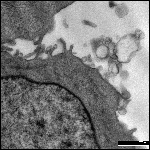The Department of Veterinary Medicine is engaged in many research areas under the One Health paradigm.
The research fields are described below, but for a more comprehensive overview, we recommend consulting the Three-Year Plans, available here.

ANTIBIOTIC RESISTANCE AND ANTHELMINTIC RESISTANCE IN A ONE HEALTH PERSPECTIVE
Study of antimicrobial and antiparasitic resistance in bacteria and helminths isolated from animals, and development of new therapeutic approaches, alternative prevention methods, and treatment strategies.
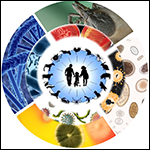
INFECTIOUS AND PARASITIC ZOONOSES
Study of the epidemiological, pathological, and pathogenetic aspects (descriptive, analytical, and experimental) and of the control of zoonotic infections and infestations within a One Health framework. Particular attention is given to vector-borne pathogens and to infectious and parasitic agents transmitted through food and water (water- and food-borne pathogens), due to their social and economic impacts.
ANIMAL PAIN
Development and validation of animal pain scales, as well as determination of pharmacokinetic parameters, efficacy, and tolerability of analgesic drugs used in various acute and chronic pain conditions across different animal species, with the aim of improving their health and quality of life. These activities are an integral part of the Centro di Ricerca sul Dolore Animale (CERIDA).
OSTEOARTICULAR AND TENDOLIGAMENTOUS DISEASES OF THE HORSE AND DOG
This research area is dedicated to the study of diagnostic techniques and surgical procedures associated with osteoarticular and tendoligamentous diseases in horses and dogs, as well as to the identification of the molecular events underlying their etiopathogenesis.
DEVELOPMENT OF INNOVATIVE DIAGNOSTIC AND THERAPEUTIC PATHWAYS IN CARDIOVASCULAR DISEASES OF DOMESTIC ANIMALS
This research area focuses on the development of new electrocardiographic and echocardiographic indices in cardiac diseases, as well as on the validation of innovative therapeutic protocols in interventional cardiology that employ minimally invasive techniques and the use of synthetic and bio-synthetic 3D materials.
REPRODUCTIVE PHYSIOPATHOLOGY AND DIAGNOSTICS
Research activities in this area focus on various aspects of reproductive pathophysiology in companion animals. In particular, studies aim to investigate local (presence, characteristics, and distribution of molecules) and peripheral (hormonal) mechanisms that regulate cyclic function, pregnancy, and certain pathologies, in order to clarify their underlying processes and develop improved diagnostic and therapeutic protocols.
Research on livestock species focuses on the inter- and intracellular physiopathological mechanisms involved in the regulation of gonadal activity, the monitoring of pregnancy, placental alterations, and reproductive performance through the isolation, characterization, and quantification of molecular markers.
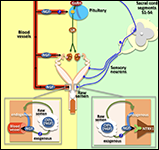
REGULATORY MOLECULES AND THEIR MECHANISMS OF ACTION
Study of the presence, distribution, and inter- and intracellular mechanisms of molecules involved in the regulation of homeostasis and, consequently, animal welfare. The investigated molecules are analyzed through the assessment of their molecular, cellular, and functional endocrinology in the organs and systems of domestic and wild mammals.

STEM CELL BIOLOGY AND BIOMOLECULAR ASPECTS OF REGENERATIVE THERAPIES
This research area focuses on the study of biological solutions for the regeneration of hard and soft tissues. In particular, the research aims to explore the molecular aspects responsible for the trophic potential of autologous blood derivatives (ACS, PRP) and to investigate the morphology, functions, and therapeutic applications of mesenchymal stromal cells, their extracellular vesicles, and their secretome, also from a biotechnological perspective.
ETHOLOGY, STRESS, AND ANIMAL WELFARE
This research area focuses on evaluating the response to physiological and pathological stressors in both companion animals and livestock species. The studies aim to identify behavioral and psychological indicators, molecular and functional markers of intermediate metabolism, and to deepen the understanding of the pathogenetic mechanisms underlying the animals’ response to such stimuli.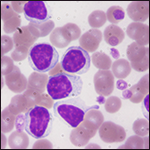
VETERINARY AND COMPARATIVE ONCOLOGY
Study of innovative knowledge in the diagnostic, prognostic, and therapeutic fields of oncological and oncohematological diseases (myeloid and lymphoid leukemias, lymphomas, myelomas) in companion animals, with particular interest in comparative aspects.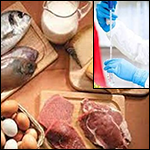
HYGIENE AND FOOD SAFETY
Study of the hygienic, sanitary, and qualitative characteristics of meat and meat products, milk and dairy products, fishery products, eggs, and honey, as well as aspects related to animal welfare and the environmental impact of production systems. Analysis of the main hazards along different production chains and their management. Research activities also include the study of novel foods and consumer perception of both traditional and innovative food products.
FUNCTIONAL FOODS DERIVED FROM NATURAL BIOACTIVE COMPOUNDS FOR ANIMAL AND HUMAN HEALTH
Evaluation of the potential use of natural bioactive compounds, including those derived from agri-food industry by-products, and of the implications of their application on livestock production, the quality of animal-derived foods, and food safety. In particular, fatty acids, polyphenolic compounds, and essential oils are investigated—also through nutrigenomic approaches—to improve animal welfare, livestock productivity, and the hygienic, sanitary, and quality standards of foods of animal origin.
GASTROENTEROLOGY OF THE DOG AND HORSE
This research area focuses on the study of equine gastroenterology, particularly gastric ulcers and malabsorption syndromes, as well as biomarkers involved in chronic enteropathies in dogs, including supportive nutritional strategies.
GENETICS AND HEALTH OF THE SPORT HORSE
The research activities carried out in this area focus on various aspects of equine medicine, and the expertise accumulated over time has led to the establishment of the Centro di Ricerca sul Cavallo Sportivo (CRCS).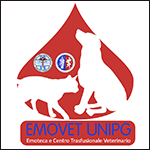
SPECIALIZED HEMATOLOGY AND TRANSFUSION MEDICINE
The research activities are focused on specialized hematology, acquired, hereditary, and complex hemostatic disorders, and veterinary and comparative transfusion medicine. Particular attention is devoted to innovative studies in omics sciences and to the epidemiological control of major zoonoses transmissible through blood transfusions, within a One Health framework.
CANINE ANTHROPOLOGY AND BEHAVIORAL MEDICINE
This research area focuses on evaluating the behavioral, physiological, psychological, and clinical responses of companion animals to develop and implement management protocols that safeguard welfare and improve quality of life (e.g., the *RandAgiamo* project in shelter dogs, and studies on performance and resilience in rescue dog units). It also investigates the human–animal relationship—its benefits and risks—and its effects on the well-being of both animals and humans within a One Health perspective.
HEALTH AND MANAGEMENT ASPECTS OF DAIRY CATTLE FARMING
This research area focuses on the study of dairy cattle from multiple perspectives: the effects of metabolic diseases on fertility, the response to physiological stressors (such as ovarian development during the peripartum period, pregnancy, and lactation) and their possible genetic basis, as well as smart farming approaches, including the use of sensors for calving monitoring.
EMERGING DISEASES AND BIODIVERSITY CONSERVATION
This research area will focus on studying the health implications related to the wildlife–domestic animal interface, also in the context of biodiversity conservation. The research will include genotype–phenotype association studies for diseases and production traits, analyses of epigenetic and transcriptional patterns, as well as investigations into the epidemiological changes that major infectious and parasitic diseases of domestic animals are undergoing in response to both biotic and abiotic drivers.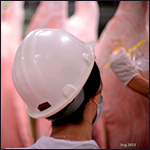
RISK-BASED FOOD SAFETY. RESPONSE TO QUESTIONS POSED BY THE EUROPEAN COMMISSION
Risk analysis and risk-based approaches in food safety assurance systems, with particular reference to the specific focus areas identified by the European Food Safety Authority (EFSA). Special attention is given to risk analysis in milk and dairy products and to risk categorization in slaughterhouses.